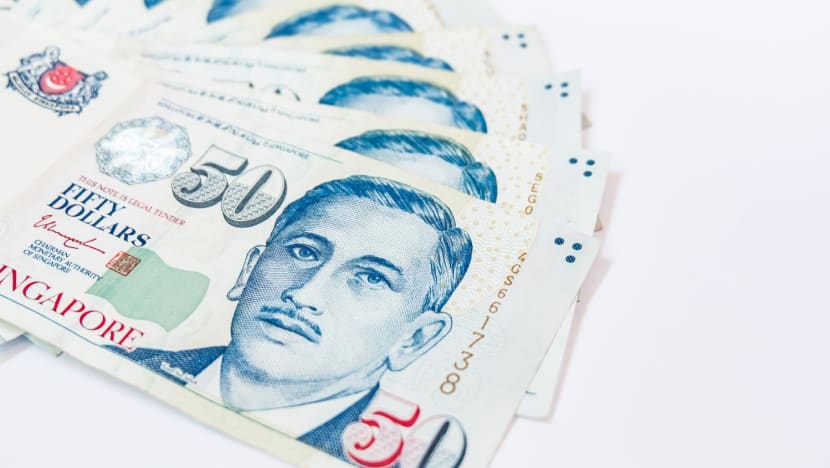Is it time to consider fixed deposits and others amid falling yields on T-bills, savings bonds?
Market watchers expect yields on T-bills to retreat but maintain above 3.5 per cent this year, while that of the Singapore Savings Bonds will range between 2.5 and 2.75 per cent.

(File photo: iStock)
SINGAPORE: After rising rapidly to hit multi-decade and even record highs last year, the yields on Singapore’s Treasury bills (T-bills) and savings bonds have peaked and are headed for a reversal.
Market watchers are expecting returns on T-bills to back down below the 4 per cent mark but maintain above 3.5 per cent this year.
Interest rates on the 10-year Singapore Savings Bonds are also unlikely to revisit the 3 per cent level and are estimated to range between 2.5 and 2.75 per cent, these experts told CNA.
Yields on both government-backed securities, which shot up in 2022 as global central banks embark on a rate-hike race, have begun to show signs of easing in recent weeks.
For example, the latest six-month T-bill closed its auction on Thursday (Feb 2) with a cut-off yield of 3.88 per cent, down from 4 per cent on Jan 18, 4.2 per cent on Jan 5, 4.28 per cent on Dec 21 and the 30-year high of 4.4 per cent on Dec 8.
Likewise, for the Singapore Savings Bond, the latest March issue opened for applications this week with a 10-year average return of 2.9 per cent. Just three months ago, the savings bond was offering a record-high interest rate of 3.47 per cent.
Just as how rising interest rates globally lifted the yields on these debt securities, expectations of a slowdown in the pace of rate hikes this year, especially by the US Federal Reserve, has contributed to the recent softening in yields, analysts said.
The Fed, in its latest policy decision this week, scaled back to a 25-percentage-point rate increase after a series of super-sized hikes, while noting that inflation “has eased somewhat”.
“There has been a shift as investors realise that the Fed might already be very close to its terminal rate so upside to short-term rates, both US and Singapore, are limited,” said DBS senior rates strategist Eugene Leow, who expects the US central bank to raise rates by 25-basis-point once more before taking an “extended pause”.
A weaker US dollar, on the back of expectations for a less aggressive Fed, also plays a part in influencing short-term interest rates here, said Mr Leow.
“Typically, when the US dollar is strong, Singapore-dollar interest rates tend to be somewhat high compared to their US counterparts. The reverse is also true,” he explained. “Singapore-dollar rates tend to be somewhat lower compared to their US counterparts when the US dollar is weak.”
That said, things could change if inflation in the US remains elevated over the medium term, prompting the need for further rate hikes.
Such a scenario will likely lead to yields on T-bills and the Singapore Savings Bonds to rebound, said Mr Lim Teng Chong, senior research analyst of global fixed income at Bondsupermart.
TIME TO PUT YOUR MONEY ELSEWHERE?
Despite the declining yields, Mr Lim said there is “still value in investing” in government securities such as T-bills.
“Most of these securities are yielding above 3 per cent for shorter tenors,” he said. “Thus, investors should continue to take advantage of the high interest rate environment to not only capture higher yields but also safer and less volatile investments especially during a time of slower economic growth.”
Echoing that, PhillipCapital’s portfolio manager Pete Tan said investors should look at their individual profiles, such as risk appetite and expected returns, before making investment decisions.
Backed by the Singapore Government, T-bills and the Singapore Savings Bonds continue to “provide a good safe haven with reasonable yield on spare cash or emergency funds”, he added.
But for those eyeing alternatives, fixed deposits with banks may offer relatively attractive returns, said Mr Shawn Sng of Phillip Securities Research.
For example, Malaysian bank RHB is offering 3.88 per cent for a six-month fixed deposit – a rate similar to the cut-off yield for the latest six-month T-bills. Other six-month fixed deposits offered by banks such as Maybank are going at 3.5 per cent.
For those who can afford to park their cash for a little longer, OCBC offers its 360 customers a per-annum rate of 4.08 per cent for deposits of eight months. Non-360 customers get a rate of 3.88 per cent.
That said, bank promotions tend to come with various conditions such as a minimum placement sum of S$10,000 and above. This is way more than the minimum investment amount for a T-bill at S$1,000, experts said.
Investors could also consider real estate investment trusts (REITS) and “undervalued” equities, said Mr Tan.
He cited the Phillip SGX APAC Dividend Leaders REIT exchange-traded fund, which is currently yielding more than 4 per cent and allows a diversified exposure to Singapore REITS whose outlook is set to pick up amid slower rates hikes this year.
While equities do not provide a higher yield, Mr Tan said he sees capital gain opportunities in the US stock market.
In particular, many of the big tech stocks that were sold off last year are now recovering amid improving market liquidity, he added.

















